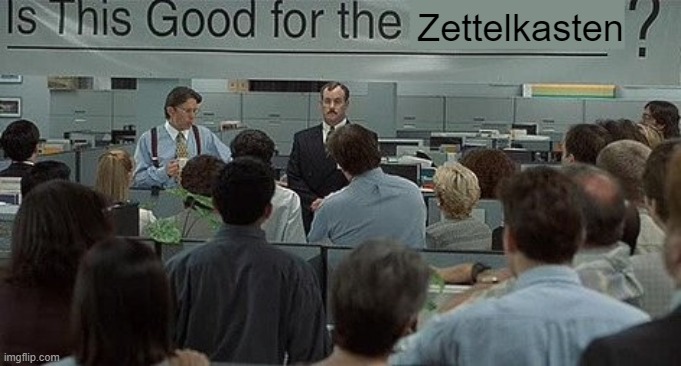Hi, I just started to use Zettlr for my thoughts, in stead of just individual txt-files. I find it easy to add tags to notes. But if you read manuals how to use ZettelKasten, most seem to advice to link your notes in a meaningful way (and describe the link). Maybe it's because I just really started, but I don't find immediate links when I have a sudden thought. Sometimes I have 2 ideas in the same line, but they're more like siblings, so tagging with the same keyword is more evident. How do most people do this?
reply to u/JonasanOniem at https://www.reddit.com/r/Zettelkasten/comments/16ss0yu/linking_new_notes/
This sort of practice is harder when you start out in most digital apps because there is usually no sense of "closeness" of ideas in digital the way that is implied by physical proximity (or "neighborhood") found in physical cards sitting right next to or around each other. As a result, you have to create more explicit links or rely on using tags (or indexing) when you start. I've not gotten deep into the UI of Zettlr, but some applications allow the numbering (and the way numbered ideas are sorted in the user interface) to allow this affordance by creating a visual sense of proximity for you. As you accumulate more notes, it becomes easier and you can rely less on tags and more on direct links. Eventually you may come to dislike broad categories/tags and prefer direct links from one idea to another as the most explicit tag you could give a note . If you're following a more strict Luhmann-artig practice, you'll find yourself indexing a lot at the beginning, but as you link new ideas to old, you don't need to index (tag) things as heavily because the index points to a card which is directly linked to something in the neighborhood of where you're looking. Over time and through use, you'll come to recognize your neighborhoods and the individual "houses" where the ideas you're working with all live. As an example, Luhmann spent his life working in sociology, but you'll only find a few links from his keyword register/subject index to "sociology" (and this is a good thing, otherwise he'd have had 90,000+ listings there and the index entry for sociology would have been utterly useless.)
Still, given all this, perhaps as taurusnoises suggests, concrete examples may help more, particularly if you're having any issues with the terminology/concepts or how the specific application affordances are being presented.
